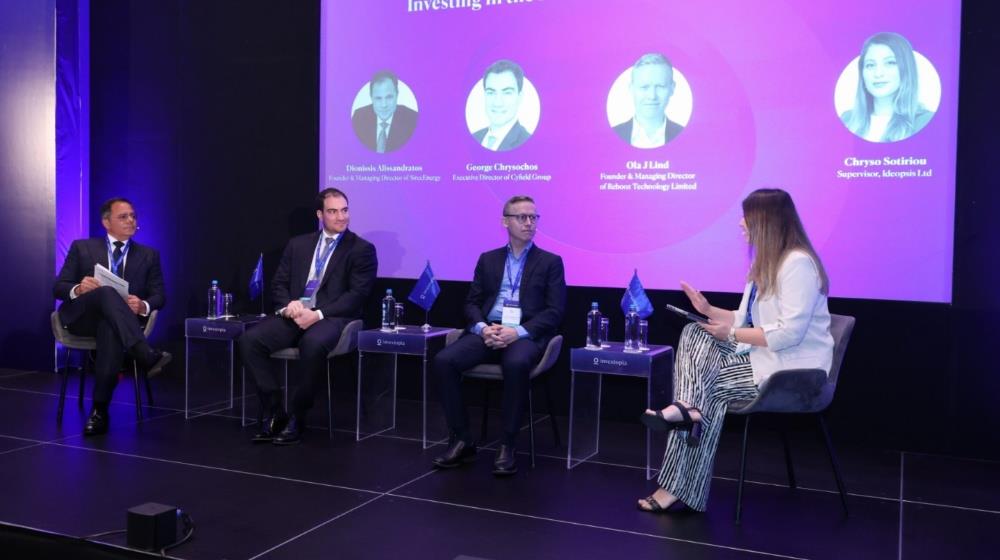With sustainability no longer just a trend but a global priority, the convergence of the energy and water sectors is emerging as a new strategic foundation for investment activity and environmental balance, a panel of speakers at the Investopia Global Mediterranean Forum in Limassol agreed.
The panel, entitled “Powering Progress: Investing in the Future of Energy and Water”, brought together leading representatives from the energy, technology and construction sectors, aiming to highlight the intersections between technology, politics and capital that are shaping the future of infrastructure.
Participants analysed developments in renewable energy sources, smart grids, water resources management, as well as the dynamics of investing in clean technologies.
The panel's common position was that progress depends not only on innovation, but also on cooperation: States, businesses and institutions must act in a coordinated manner to accelerate the transition towards infrastructure with a low environmental footprint and high efficiency.
Particular emphasis was placed on the importance of cross-sectoral projects, where energy and water combine to jointly respond to the challenges of climate change, natural resource security and energy self-sufficiency.
Energy consumption increasing rapidly
Dionysis Alyssandratos, Founder & Managing Director of SirecEnergy, said that "we are not embarking on an energy transition, but adding energy."
As he explained, energy consumption usually follows GDP growth, but today there are specific sectors that are increasing it drastically, such as electromobility in transportation and data centres that require huge amounts of energy.
He also referred to the high cost of hydropower applications, stating that “energy efficiency is our top priority”. Finally, he highlighted the investment opportunities that arise from the utilisation of waste energy.
George Chrysochos: The transition to green energy was rushed rather than organic
George Chrysochos, CEO, Cyfield Group, argued that the transition to green energy was rushed rather than organic, which caused problems. In his view, “the European Union imposed the green transition too quickly.”
He referred to excessive regulation and taxation that has negatively affected heavy industries, noting that countries like China export more cars than they import.
He supported the need to lift tax burdens and deregulate critical productive sectors.
Ola J Lind, Founder & Managing Director of Rebooz Technology Limited, said that energy should be seen as a solution that is also profitable. He stressed that the reality outside the European Union is very different and requires flexible solutions that can be implemented immediately.
"We need a dehumanized way of thinking," he said, arguing that it is important to act today to fix future problems arising in the context of the climate crisis.
The panel was moderated by Chryso Sotiriou, Supervisor at Ideopsis Ltd.









